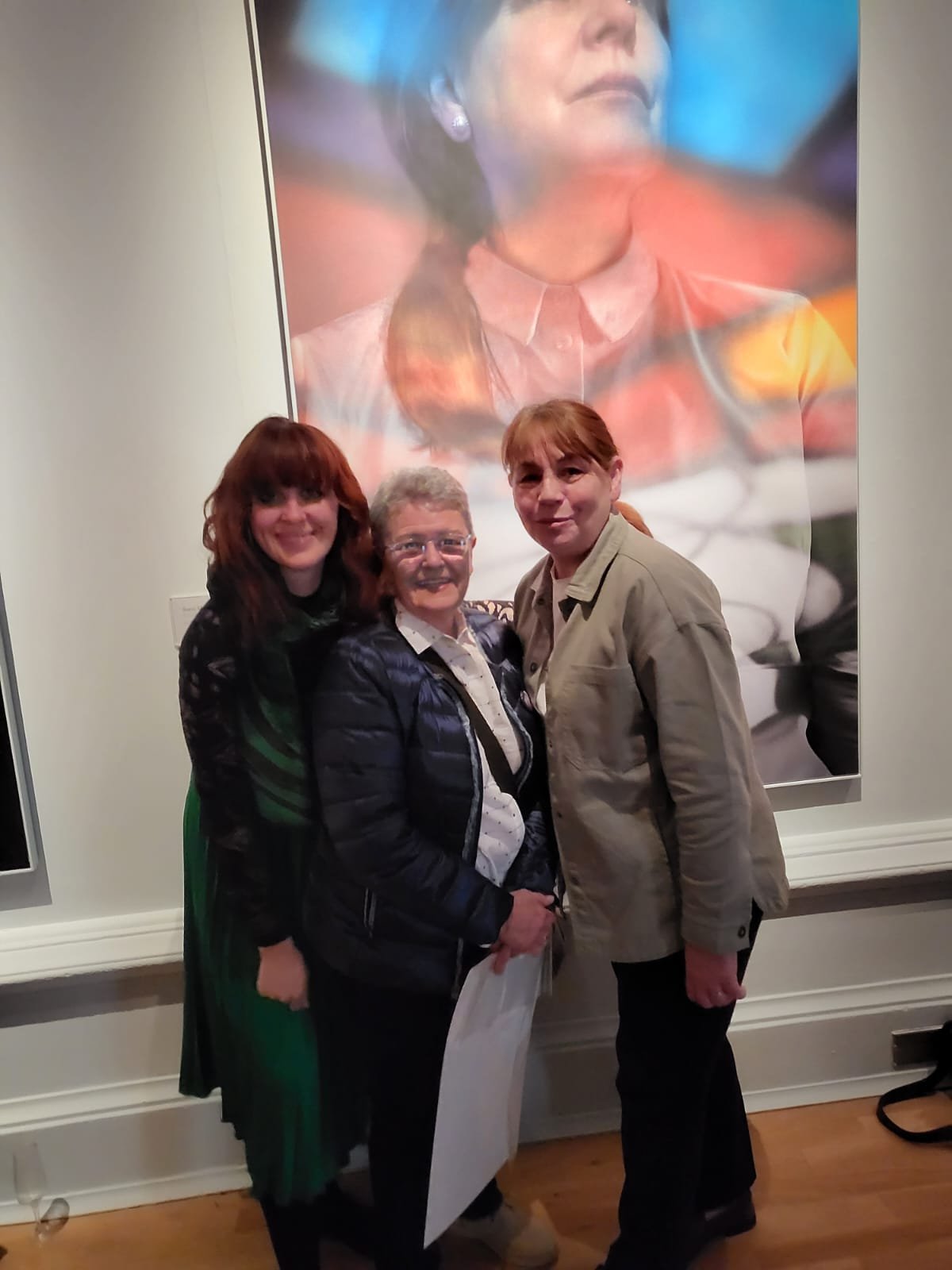Mothers of Peace
Many of the women featured in the Peace Heroines exhibition began their activism early on in their lives through involvement in trade unions and community work. It was one way to introduce much-needed change in their local communities and learn skills that would later prove vital in their peace work. Being a trade unionist allowed some, like Eileen Weir, to ‘look at the issue and not the people’ at a time when division and sectarianism was the focus of many. Community involvement worked in the same way, like in the 1980s when the residents of May Blood’s estate got together and decided to ‘leave the constitutional issues to the side’ when they realised that they all ‘faced the same uphill battle with the likes of poor housing and low education attainment.’ Women in these sectors were ‘working across the political divide.’
Susan McCrory from the Falls Women’s Centre with Eileen, 2022. Photo by Steve O’Connor
On the day of the Good Friday Agreement, when the news was full of politicians in suits shaking hands, the peace women of the Falls and Shankill were hugging each other. And they had been hugging for decades. No matter how bad it got during the Troubles, these women never stopped working together for peace, reconciliation and women’s rights.
Their essential peace work didn’t make the headlines 25 years ago, but today, at the #Agreement25 #GFA25 conference, the Herstory Education Trust shines a spotlight on Susan McCrory from the Falls Women’s Centre and Eileen Weir from the Shankill Women’s Centre.
Together Susan and Eileen have built a remarkable friendship, beyond religious or political divides. What we admire about these courageous women and community activists is their selflessness, authenticity and commitment.
Portrait by Friz
In the age of the narcissism pandemic, the Peace Heroines don’t look for the spotlight or accolades. They are too busy getting on with the job and delivering incredible impact. Together they are doing the hard work of peace-building on the ground, implementing the Good Friday Agreement in their communities and organisations every day.
Last summer, Eileen and Susan agreed to Herstory’s proposal to produce a film interview. The women told us that the BBC and UTV had asked to interview them in the past but they declined, however they said they trusted Herstory to tell their story.
Herstory Founder and project curator Melanie Lynch captures the power of this film in a moving anecdote: “Like many who had the COVID virus, I suffered from heart palpitations for months. I went to the hospital and the cardiologist’s recommendations failed to stop it. After 6 months I had given up hope, when I travelled to Belfast to film Susan and Eileen. Being in the presence of these brilliant women and hearing their awe-inspiring stories quite literally reset my heartbeat and cured by palpitations. That’s the power of these ordinary but extraordinary women. Healing comes in surprising ways.”
Watch the film below in which they reflect on their experience of the Troubles, their entry into community work, and their thoughts on the future of the peace process.
Prepare to have your heart broken open.



